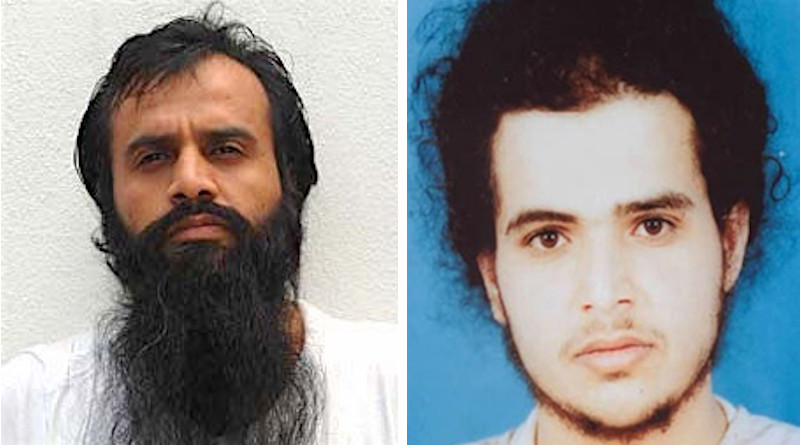Judge Upholds Ruling Ordering Independent Medical Review For Tortured Guantánamo Prisoner Mohammed Al-Qahtani – OpEd
Back in March, as I explained in an article at the time, District Judge Rosemary Collyer made history when she ordered the US government to allow independent medical and psychiatric experts from outside the US to assess a prisoner at Guantánamo.
The prisoner in question is Saudi national Mohammed al-Qahtani, who had pre-existing serious mental health issues that the US authorities failed to disclose when, at Guantánamo, they came to regard him as the intended 20th hijacker for the 9/11 attacks, and subjected him to a torture program involving months of sleep deprivation and sexual humiliation.
Judge Collyer’s ruling involved her, as Carol Rosenberg explained for the New York Times, stating that “she was granting a request” by al-Qahtani’s lawyers “to compel the United States to apply an Army regulation designed to protect prisoners of war and to create ‘a mixed medical commission’ made up of a medical officer from the US Army and two doctors from a neutral country chosen by the International Committee of the Red Cross and approved by the United States and Saudi Arabia.”
As Rosenberg also stated, “In ordering the evaluation, Judge Collyer relied on a report from Dr. Emily A. Keram, an American psychiatrist who treats US veterans and who examined Mr. Qahtani at Guantánamo and some of his medical records in Saudi Arabia.” Her report noted that al-Qahtani “spent four or five days in the psychiatric unit of a hospital in Mecca, Saudi Arabia, after an ‘acute psychotic break’ and a suicide attempt in May 2000,” and she also noted that he “suffered a head injury in a car accident when he was a child and was subsequently diagnosed with schizophrenia.” As Rosenberg put it, “One symptom included hallucinations; he spoke to nonexistent people before he left Saudi Arabia and after his arrival at Guantánamo.”
As Rosenberg also explained, “Central to Judge Collyer’s order was the contention by Mr. Qahtani’s lawyers that Guantánamo was not equipped to handle his psychiatric illnesses, and that he was entitled to repatriation to culturally appropriate mental health care under the prisoner-of-war provisions in the Army regulations.”
Judge Collyer has since retired, but, taking over the case, District Judge Ellen Huvelle last Wednesday rejected an effort by the government to “put on hold” Judge Collyer’s order, as Ben Fox explained for the Associated Press, describing al-Qahtani as a prisoner who “was so badly mistreated in American custody that he cannot be put on trial.”
The Justice Department had said that it intended to appeal the March decision, but Judge Huvelle “noted in her ruling that, due to his health, the risk of delay to the prisoner ‘far outweighs’ any potential harm to the government from dispatching a team of doctors to evaluate him.”
She also noted that government lawyers had “failed to demonstrate either a likelihood of success on the merits or that the balance of harms weighs in their favor.”
Ben Fox proceeded to run through al-Qahtani’s history in US custody, explaining, as should always be noted, that his is the only example of torture by US forces that has been acknowledged by a senior US official — Susan Crawford, the convening authority for the military commission trial system at Guantánamo. As Fox put it, al-Qahtani was “subjected to treatment that was so brutal that the Pentagon legal official in charge of the war crimes tribunals determined that it amounted to torture and he could not be prosecuted.”
Fox also explained that the US government “has never said what it plans to do with him” — as, indeed, is the case with all of the “forever prisoners” still at the prison, 26 of the 40 prisoners still held, who are not facing prosecution, and are, instead, held indefinitely without charge or trial, in defiance of all internationally recognized norms regarding imprisonment.
As Ben Fox further explained, Judge Huvelle factored his history of mental health issues into her decision, stating, in her ruling, “Mr. al-Qahtani’s mental health issues were evident to US government officials when he was first detained at Guantánamo Bay and have been exacerbated by the torture he initially suffered at the hands of the US government and the over 18 years he has spent in detention.”
Writing about the “mixed medical commission,” Fox also explained that the Saudi government has already agreed to al-Qahtani’s return.
In contrast, the government continues to argue that, as Fox described it, “al-Qahtani can get any medical treatment he needs at Guantánamo,” and that “creating a Mixed Medical Commission, which has never before been provided for a prisoner at the detention center, would set a precedent that would inspire others to seek one as well.”
This may well be the case, but what it shows, surely, is that al-Qahtani is not the only prisoner deprived of an appropriate assessment of his physical and mental state.
Ramzi Kassem, a law professor at the City University of New York, and one of al-Qahtani’s attorneys, said that “he thinks the government is worried about what an independent medical panel would conclude about his client,” as Fox described it. As Kassem put it, “They’re concerned the mixed medical commission will come back and say he meets the criteria for medical repatriation.”
Judge Huvelle noted that “it would likely take some time to put together a medical panel and dispatch it” to the prison, especially as the authorities have had to “put restrictions on visitors due to the COVID-19 pandemic that have brought legal proceedings against other detainees to a standstill,” but, crucially, she has continued to support Judge Collyer’s insistence that al-Qahtani needs the kind of medical assessment that his captors have, shamefully, failed to provide in 18 years.

